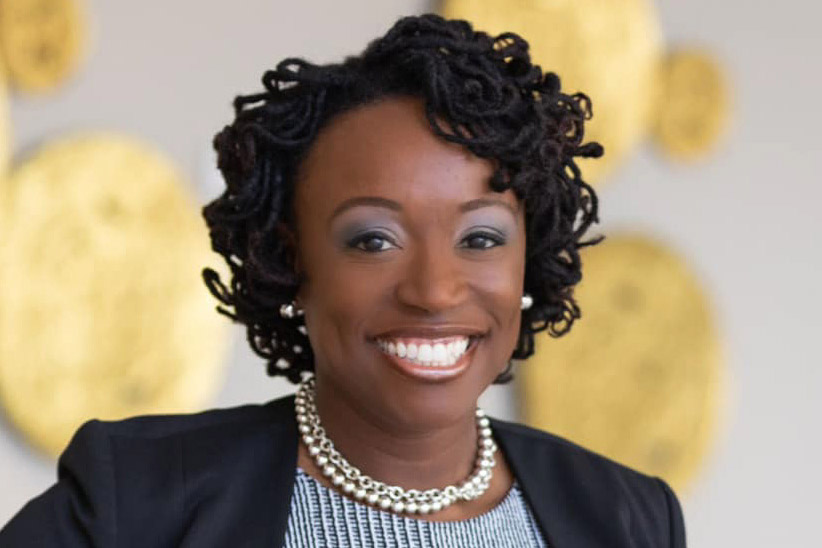Kia Noelle Johnson, PhD, spoke recently on the importance of providing culturally responsive care in clinical and work environments at a Black History Month presentation sponsored by the Munroe-Meyer Institute.
During the Feb. 7 presentation, she spoke about her days in the undergraduate program at Truman State, where she was one of only two underrepresented students of color. Some colleagues, she said, assumed that because she and the other student were both Black, of course they must be friends.
The experience resulted in her deciding to get her master’s at Howard University, a historically Black college or university (HBCU).
But then, while working toward her PhD at Vanderbilt, she again found herself the only person of color in the program.
And since her graduation from Vanderbilt, she said, she regularly has been asked to represent the underrepresented, on her campus and off. Calls to talk about “cultural issues” have increased since 2020, she said.
But Dr. Johnson, associate director of the Arthur M. Blank Center for Stuttering Education and Research Satellite in Atlanta and chair of the board of directors for the National Black Association for Speech-Language and Hearing, also said that as a guest presenter, she does revel in her ability to “come in, shake things up and swoop out.”
Sometimes it takes an outsider to have the perspective to see things and the freedom to say things, she said.
She also regularly conducts self-inventory, just as she asks others to do. “Every time I lecture, I make a point to intentionally educate myself,” she said.
She understands why some may not realize why efforts in diversity, equity and inclusion are needed. Part of being of the dominant culture is not having to realize it.
But others are reminded every day.
“I still get imposter syndrome,” she said. Even as accomplished as she is, “We will commonly go into an environment, and people will question our ability from every angle. … I’m coming in with (things to carry) the other person doesn’t have.”
Dr. Johnson addressed issues including: the continuum from cultural awareness to cultural humility, individual racism vs. systemic racism, that providers can be on their best behavior with patients but often need more mindfulness around their own colleagues, and that institutions may be working toward diversity, but the “E” and the “I” in DEI are what really make it happen.
This DEI event was “a crumb, a sprinkle,” Dr. Johnson said. The real work must supersede presentations and committees. “You have to keep this conversation going.”

Great article by Marquita Govan. Thank you! I appreciate the conversation being started in the first place, being not only at the table but being listened to and heard- I agree with Dr. Johnson that “You have to keep this conversation going” The conversation needs to be continued, not just during Black History month but all year round- We have so much we can learn from each other- Thanks, Stephanie Lewis